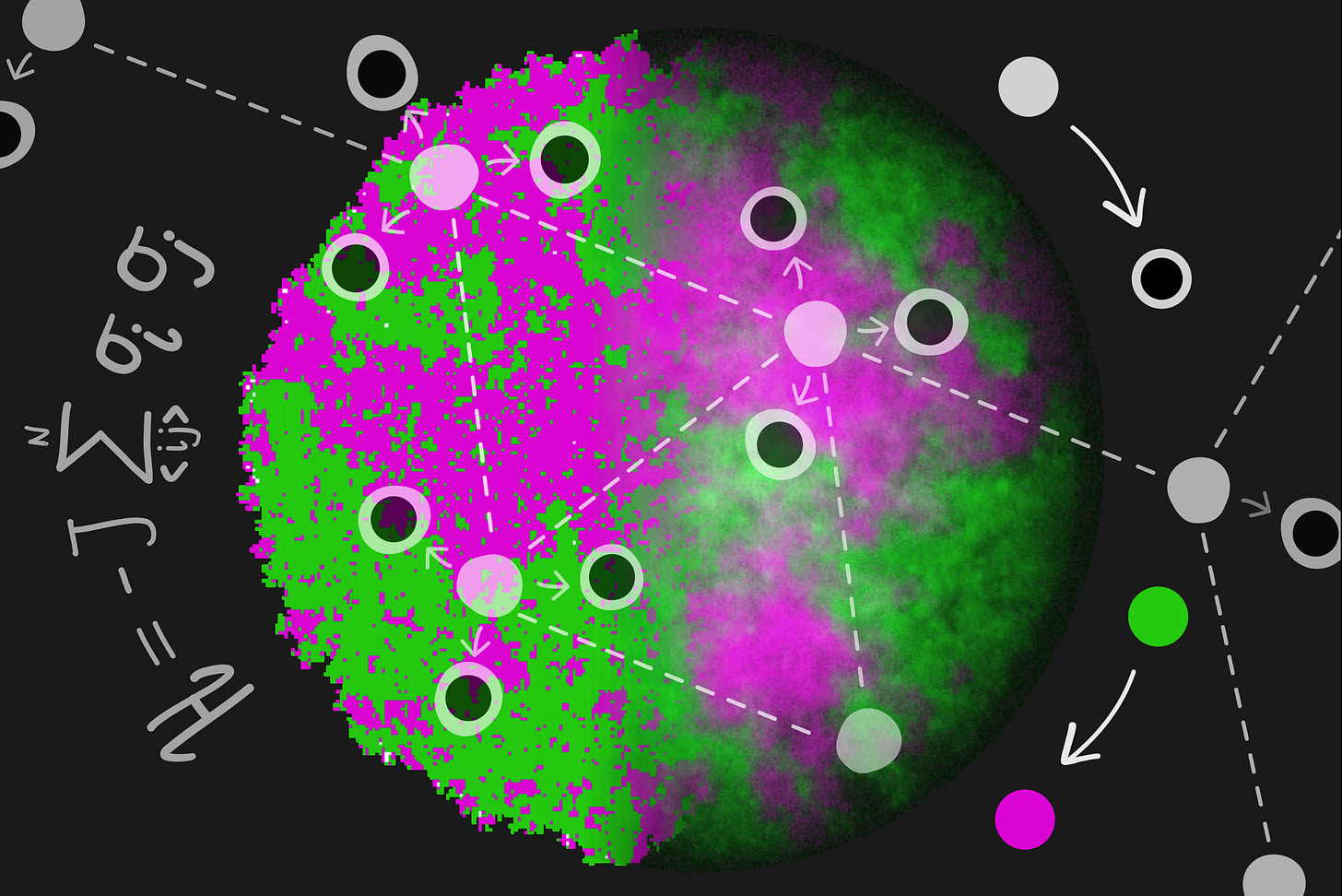This week in MathOnco 280
We're back! PS - consider write a blog post in 2024.
“This week in Mathematical Oncology” — January 11, 2024
> mathematical-oncology.org
From the editor:
We’re back after a nice long holiday break!
This week’s edition has quite a few new meetings/conferences relevant to math oncology, below. Please brown the website for more options, or submit suggested conferences here.
Would you consider writing a blog post this year? The Mathematical Oncology Blog’s leader, David Basanta (Moffitt), has written a recap of 2023, along with a solicitation for more posts in 2024, here.
A personal note: any posts written will be broadcast to our math oncology community here, which (interestingly!) includes both scientists and non-scientists alike, making it a good opportunity for science communication beyond academia.
Thanks,
Jeffrey West
jeffrey.west@moffitt.org
Time-resolved, integrated analysis of clonally evolving genomes
Carine Legrand, Ranja Andriantsoa, Peter Lichter, Günter Raddatz, Frank LykoMathematical modeling of intratumoral immunotherapy yields strategies to improve the treatment outcomes
Constantinos Harkos, Triantafyllos Stylianopoulos, Rakesh K. JainMathematical model predicts tumor control patterns induced by fast and slow cytotoxic T lymphocyte killing mechanisms
Yixuan Wang, Daniel R Bergman, Erica Trujillo, Alexander T. Pearson, Randy F. Sweis & Trachette L. JacksonFormation and Growth of Co-Culture Tumour Spheroids: New Compartment-Based Mathematical Models and Experiments
Ryan J. Murphy, Gency Gunasingh, Nikolas K. Haass & Matthew J. SimpsonTranscriptional state dynamics lead to heterogeneity and adaptive tumor evolution in urothelial bladder carcinoma
Antara Biswas, Sarthak Sahoo, Gregory M. Riedlinger, Saum Ghodoussipour, Mohit K. Jolly & Subhajyoti DeSounak Sahu, Sarthak Sahoo, Teresa Sullivan, T. Norene O’Sullivan, …,
Serguei V. Kozlov, Karl R. Koehler, Mohit Kumar Jolly, Shyam K. Sharan
Antifragility as a complex system's response to perturbations, volatility, and time
Cristian Axenie, Oliver López-Corona, Michail A. Makridis, Meisam Akbarzadeh, Matteo Saveriano, Alexandru Stancu, Jeffrey WestSimulating BRAFV600E-MEK-ERK signalling dynamics in response to vertical inhibition treatment strategies
Alice De Carli, Yury Kapelyukh, Jochen Kursawe, Mark A.J. Chaplain, C. Roland Wolf, Sara HamisA Stochastic Population Model for the Impact of Cancer Cell Dormancy on Therapy Success
Jochen Blath, Anna Kraut, Tobias Paul, András TóbiásJoint Modeling of First-Line Therapeutics in Non-Small Cell Lung Cancer Using Large Database Reveals Potential Benefits of Scheduling Optimization
Benjamin Karl Schneider, Sébastien Benzekry, Jonathan MochelRebecca M. Crossley, Sam Johnson, Erika Tsingos, Zoe Bell, …, John Metzcar, Marco Ruscone, Yuan Yin, Robyn Shuttleworth
Cancer Evolution: From Genome to Ecology
8–10 May 2024 (Wellcome Genome Campus, UK, and virtual): “Cancers are an evolving ecosystem of cells, and so knowledge of evolution and ecology is important for understanding both the basic science and the clinical management of cancerThis year’s Cancer Evolution: from Genome to Ecology conference will highlight recent advances in phenotypic plasticity, multicellularity of aging and cancer, as well as, developments in spatial biology and modelling the evolution of caner, including using machine learning methods. Scientific presentations on data visualization will be complemented by informal workshops on using art for scientific gain. The programme will also include presentations selected from abstracts submitted on the broad themes of the conference. Posters and poster-pitch talks will provide opportunities to present research findings or get feedback on ongoing projects. This highly-interactive meeting will foster knowledge exchange among evolutionary biologists, ecologists, cancer researchers, clinicians and those from other disciplines who would like to learn about recent developments with application to cancer evolution and ecology. There will be plenty of opportunities to establish collaborations through face-to-face networking with inclusive meals, and optional on-site accommodation.
The conference is held in collaboration with the International Society for Evolution, Ecology and Cancer (ISEEC).“
SMB MathEpiOnco 2024
February 18-20, 2024 (Virtual via Zoom): “Joint meeting between the Mathematical Epidemiology and Mathematical Oncology Subgroups of the Society of Mathematical Biology”Mutations in Time & Space
April 23-25, 2024 (Edinburgh, UK) ”Technological and theoretical advances have driven recent insights into mutational processes active across various biological scales. From species to tissues, through clonal lineages and specific genomic features, we’ll come together at this conference to explore the wider significance of mutagenesis and genetic variation. Due to popular demand and to allow for late-breaking stories, the abstract deadline has been extended to 25th January 2024.”
The newsletter now has a dedicated homepage where we post the cover artwork for each issue. We encourage submissions that coincide with the release of a recent paper from your group. This week’s artwork:
Based on the paper: Spatial biology of Ising-like synthetic genetic networks published in BMC Biology
Artist: Janneke Noorlag
Caption: Cell differentiation and tissue architecture are biological processes which play a key role in oncogenesis. This image composition overlaps fluorescent microscopy of a synthetic bacterial colony (right half) and a spatial simulation of its growth-differentiation process (left half). The colony implements an Ising-like genetic network (hence the depicted Hamiltonian) model of cell state differentiation as described in the work of Simpson and collaborators (see Figure 3 here). Overlapping the bacterial colony is an "organ lattice" network of stem cell niches hosting stem cells differentiating into surrounding tissue. The repetition of these spatial niches across the tissue landscape is modelled as a lattice organ by Keymer and collaborator (see Figure 1 here) and cancer-stem-cell spatial dynamics as the ecology of a competition colonization trade-off model.
Visit the mathematical oncology page to view jobs, meetings, and special issues. We will post new additions here, but the full list can found at mathematical-oncology.org.
1. Jobs
Current subscriber count: >1.8k










